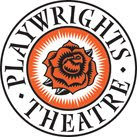Huddie “Ledbelly” Ledbetter, the famous convict and blues man, and John Lomax, the cultural anthropologist for the Smithsonian Institute, were an odd pair traveling through the South collecting prison songs during the Great Depression. This play traces the often humorous, often tense, relationship that developed as Huddie became a musical sensation under the watchful eye Lomax, and looks at the choices artists must make to practice their craft in America.
Rufus Caleb theatre credits include FROM GOOD EVENING TO GOOD NIGHT: RICHARD & JIMI, FATHERS AND SONS, SLAVE COFFLE WITH OBSERVER, WASTED, MY DUNGEON SHOOK, JEAN TOOMER’S CANE, PROLOGUE TO FREEDOM, CITY LIGHTS—AN URBAN SPRAWL. He has also written for television: I WALKED A DARK AND DANGEROUS MOON (WHYY-TV, PBS, Philadelphia), JEHOVAH’S WITNESS (WHYY-TV, PBS, Philadelphia), MEN OF BRONZE (ABC-TV mini-series, unproduced) and BENNY’S PLACE (ABC-TV). For radio, Rufus has written THE REHEARSAL (WNYC’s The Radio Stage), TEN NOTES (WNYC-Radio), MOODS FOR JAZZ (a choral adaptation of Langston Hughes’s ASK YOUR MAMA: TWELVE MOODS FOR JAZZ), THE BALLAD OF MISTUH JACK (commissioned by New American Radio) and THE DEVIL AND UNCLE ASA (commissioned for WNYC’s The Radio Stage).
His play FATHERS AND SONS was nominated for “Best New Jersey Play” by THE STAR-LEDGER in 2000. THE REHEARSAL was selected for “The Best Short American Plays, 1996-1997” by Applause Books. He received the “Special Achievement Award” in the 1993 Community Radio Awards, National Federation of Community Broadcasters for THE DEVIL AND UNCLE ASA. He received additional artistic recognition for BENNY’S PLACE as it was nominated for “Original Television Drama” in the 1982 Writers Guild of America TV/Radio Writing Awards. His received the “The Humanitas Certificate” for humanizing achievement in television from the Human Family Education and Cultural Institute. He had a nomination for “Best TV Movie” at the 1982 Beverly Hills-Hollywood NMCP Image Awards as well as “The 10 Best TV Movies of 1982” selection by Judith Christ for TV Guide Magazine. Rufus was a “Theatre Award” recipient for best conference play, 1981 Eugene O’Neill National Playwrights Conference.
His publications include: SLAVE COFFLE WITH OBSERVER, in Rowing To America: The Immigrant Project. Edited by John Pietrowski. Woodstock, Illinois: Dramatic Publishing Company, 1999. THE REHEARSAL, was published in THE BEST SHORT AMERICAN PLAYS 1996-1997. Edited by Bert Sugarman. New York: Applause Books. OEDIPUS AND ME, poem and dramaturgy notes for Gospel at Colonus production, The People’s Light and Theatre Company, 1995. STRENGTHENING ORGANIZATIONS TO FULFILL COMMUNITY NEEDS, in CULTURAL DIVERSITY. Edited by Laura Costello. Washington, D.C.: National Endowment for the Arts. He has had a variety of short stories and poetry published in: HOO DOO, BLACK SERIES; JOURNAL OF BLACK POETRY; MARYLAND REVIEW; OBSIDIAN; POETRY, NOW; SALOME; SHENANDOAH; WILLIAM AND MARY REVIEW. He was also the Editor of PENNSYLVANIA ENGLISH, Journal of the Pennsylvania College English Association, 1976-1980 and a Philadelphia and an Arts Reviewer of PEFORMANCE MAGAZINE, 1972-1973, Baltimore, Maryland.
1. What inspired you to write MOST FAMOUS NEGRO IN AMERICA?
I had written a short piece about Little Richard and a young Jimi Hendrix--whom Richard hired as a tour musician in 1963. The conceit in the piece was a rehearsal of the song, "Goodnight, Irene," generally attributed to Lead Belly. the song lead me to Lead belly's life and his release from prison at the height of the Great Depression and the advent of modern celebrity.
2. What is your favorite blues singer and why?
3. You've written for stage and television both of which are visual mediums. When you write for radio, how do you help create those images for folks that are listening?
Maybe more than creating images is the idea that, over radio, silence is incomprehensible. So I tried for words were interesting and provocative for the ear, placed into continuous ‘sound beds’—the visuals that film presents—making every second accountable.
4. Your play looks at the choices artists must make to practice their craft in America. What choices have you made to practice your craft?
I chose teaching. Having grown up in a large working class family that hobbled along financially, even with two parents working, I could not not have a job. And college teaching gave me the kind of independence from direct supervision that has been good for me. I’d also have to suggest that, as much as I wish I could write the kind of scripts that make money, I don’t have that kind of talent. And finally, teaching has allowed me to be sure I live my life.
5. Will you share with us your favorite poem that you have written?
GREAT-UNCLES
Age draped about his back
like the hair shirts of citizen priests
he sits within reach of the sun
has come years to this:
idling in the city’s vortex
legs crossed in the manner
of the old: composed secretly important
he stirs begins to argue
with himself with memories
his face yells out
raised eyebrows speculate
he stops to consider attacks
twisting his mouth flashing purple gums
My great-uncle came home
unbalanced they said
by the Great War stepped
into a swarming street
directed traffic to a standstill
until they whispered him back
to live in the warm part of the house
I lay on the grass
just outside his shallow vision
watching another Black man
slip in and out of battle
pressing his life to himself
like fingers over fresh wounds
promise I will leave this park
before I am old with personal histories
♦ Playwrights Theatre will present these readings free of charge, with an optional donation of $10
♦ A $25 dollar donation will get you a FORUM pass that covers all of the readings.
♦ A $250 donation will get you a rehearsal pass that allows access to all reading rehearsals.
♦ Reservations can be made online at or call (973) 514-1787 X10
Click here to reserve your seat to see MOST FAMOUS NEGRO IN AMERICA.
You can also find additional information on our website about the entire FORUM reading series.


No comments:
Post a Comment